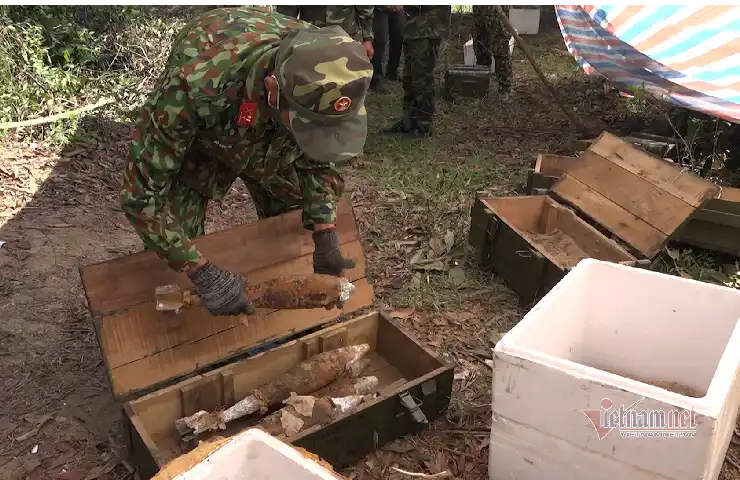![]() More than 45 years after the Vietnam war ended in 1975, the country is still busy clearing thousands of unexploded bombs, mines and other kinds of ordnance.
More than 45 years after the Vietnam war ended in 1975, the country is still busy clearing thousands of unexploded bombs, mines and other kinds of ordnance.
Vietnam's central city of Da Nang destroyed more than three tons of unexploded mines and bombs in a four-day effort beginning October 01.
The Vietnamese defence forces located these unexploded ammunition that had remained buried for decades. In a news report, the Vietnamnet.vn website says: "According to the engineering force of the Military Command of Da Nang City, these bombs and mines were buried for decades so they were all rusted and easy to explode".
Military engineers transported the bombs, mines and explosives to a different location–Dong Nghe training ground, to destroy them safely.

Unexploded ammunition being collected and disposed off (Photo credit: Vietnamnet.vn)
The leftover bombs have taken a big toll on Vietnamese lives. More than 42,135 Vietnamese people have lost their lives and 62,163 have been injured between 1975 to 2000. The country itself has spent millions of dollars every year to search and destroy the unexploded ammunition besides resettling the tens of thousands of victims.
Vietnamese estimates from 2002 say that 6.6 million hectares of land, or 21.12 per cent of the country, remains contaminated with unexploded ordinance.
Experts say that the US had literally rained bombs on Vietnam during its efforts to upstage the communist regime. Besides bombs, the US had also sprayed Agent Orange over Vietnamese fields and forests in a bid to kill vegetation that would offer food and shelter to the Vietnamese forces.
The US too has been assisting Hanoi clear up the ordnance along with international organisations.
Vietnam asserts rights over disputed Spratly islands through its lighthouses
India has developed good relations with South East Asia to balance China




















